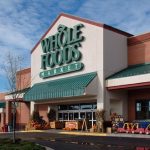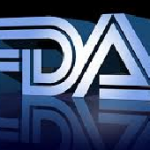fasdf@sadf.tu
A Food Recall’s Ripple Effect: What We’ve Learned from Valley Milk Products
The Valley Milk Products recall resulted in a subsequent ripple effect of recalls affecting over 30 companies. As this food safety event has played out over the last several months, it has also raised several questions on how the industry should react and handle these types of chain-reaction-like recalls. The full article can be found on the Food online site. The Ripple Effect As reported i n details (1, 2, 3 ) The primary recall of Valley Milk Products (VMP) resulted in a ripple effect to a secondary group of companies that used VMP. The Ripple Effect Turns Tertiary As described in the Food online articlewe are...
fasdf@sadf.tu
Whole Food Closing Prepared Meals Kitchens. Is it Due to Food Safety?
Whole Foods is closing three regional kitchen facilities in Everett Massachusetts, Landover Maryland and Atlanta that made prepared foods sold in its stores, and will instead rely on outside suppliers. There is conflicting information about the reason of the closings and if it is related to the June 8, 2016 letter from theFDA that claimed: “The inspection found serious violations of the FDA’s Current Good Manufacturing Practice (cGMP) regulations for manufacturing, packing, or holding human food ”in the Everett plant. The FDA Letter The FDA found over 20 different violations in the Everett plant and in the letter asserted that “These...
fasdf@sadf.tu
Multiple Product Recall Due to Salmonella in Suppliers Milk and Buttermilk Powders
The U.S. Food and Drug Administration (FDA) announced on November 30 that the U.S. Marshals Service seized more than 4 million pounds of product produced by Valley Milk Products LLC (Valley Milk) of Strasburg, Virginia. The U.S. Department of Justice filed the complaint, on behalf of the FDA, in the U.S. District Court for the Virginia Western District, alleging that the seized products are adulterated. The seized products include dry nonfat milk powder and buttermilk powder packaged in 40- and 50-pound bags for further manufacturing and are worth nearly $4 million. During an FDA inspection of Valley Milk from July –...
fasdf@sadf.tu
FDA announced a new strategy to modernize oversight of imported foods
The U.S. imports about 15% of its overall food supply from more than 200 countries or territories. Over the past 15 years, a trend of rising imported foods was observed. Foreign countries now supply about 32% of the fresh vegetables, 55% of the fresh fruit and 94% of the seafood that Americans consume. The FDA announced its new strategy designed to meet four goals in modernizing the oversight of foods imported to the US: Foreign Supplier Verification Program Preventing food safety problems in the foreign supply chain prior to entry into the U.S. FDA will take new steps to assure that imported...



